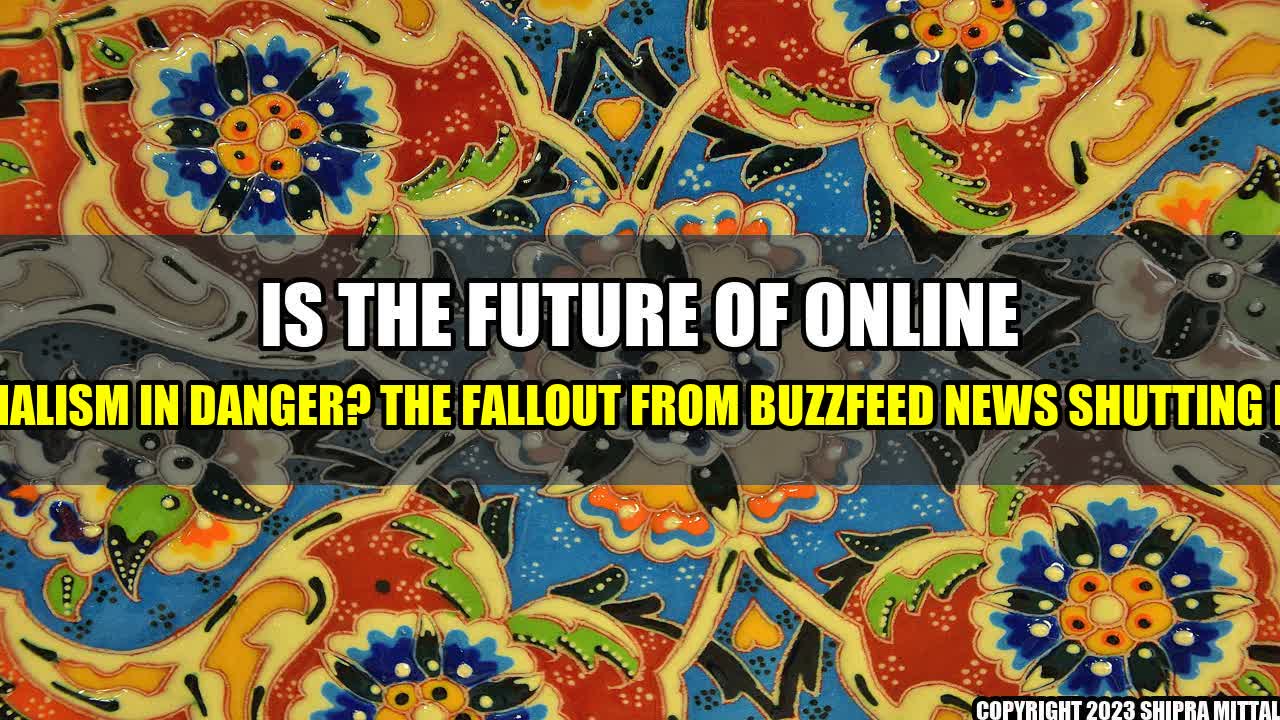In January 2021, BuzzFeed News, one of the most popular and respected online journalism websites, announced that it was closing down. BuzzFeed News had been a pioneer in the field, collecting an impressive collection of Pulitzer Prizes and other journalism accolades. The announcement sent shockwaves throughout the journalism industry, with many wondering what the impact of BuzzFeed News shutting down would be.
The way we consume news has drastically changed in the digital age. Online journalism has become a critical component of our world, informing the public about significant events and holding power to account. With the rise of social media, the number of people getting their news from traditional sources has been in decline. BuzzFeed News sought to change this with their innovative and engaging style of journalism.
However, it was not just independent journalism that was losing its grip, but also major legacy media companies. The New York Times reported a decline of print advertising revenue in 2019, and the demand for digital advertising was not meeting their expectations. Similarly, Wired announced a switch to a subscription-based model, in which readers can only access content if they pay. The question remains: Is the future of online journalism in danger?
Real Life Examples
There are several concrete examples of how the internet has changed journalism. For instance, Pulitzer Prize-winning journalists have emerged from BuzzFeed News, demonstrating the increased credibility of digital publications. This success, however, may be harder to achieve without a platform-like BuzzFeed, which had the resources to invest in investigative journalism and the resources to gain a massive online following.
Another example is how social media has disrupted traditional journalism models. Instead of relying on newspaper and television channels to access the news, people can receive information directly through their social media accounts. Social media platforms have become gatekeepers of news, with trends like Twitter news and Facebook Live providing real-time updates.
Conclusion
The closure of BuzzFeed News highlights the continuing crisis in the journalism industry. The advent of digital media has placed strain on companies that were once dominant, and many others have been forced to adapt to the changing landscape to survive. It remains to be seen whether this idea of investing in investigative journalism will continue if those investment costs are not covered by an adequate platform.
The journalism space will continue to face obstacles but itâs time to think beyond the old model of advertising-based journalism. The future of journalism can find hope in The New York Timesâ subscription-based model and incentive-led advertising of other publications people truly value. Despite all this doom and gloom, some news sources are thriving in the new environment. In conclusion, the BuzzFeed News shutdown is a strong indicator of how digital media continues to shape journalism, leaving publishers to reconsider their revenue models and approach to investigative journalism.

Akash Mittal Tech Article
Share on Twitter Share on LinkedIn